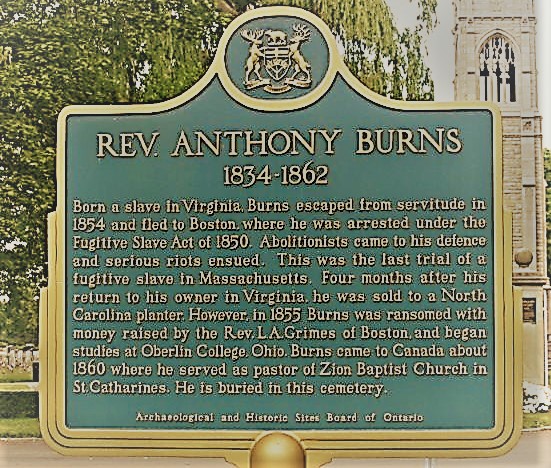
August 29, 1787 – The delegates at the Constitutional Convention in Philadelphia adopt a motion made by two South Carolina delegates to require "fugitive slaves and servants to be delivered up like criminals." The next month, the Fugitive Slave Clause becomes part of the signed Constitution.
February 12, 1793 - President George Washington signs the first Fugitive Slave Act. ‘
1834 – Anthony Burns is born in Stafford County, Virginia.
September 18, 1850 - President Millard Fillmore signs a new Fugitive Slave Act, part of the Compromise of 1850. The new law authorized the hiring of additional commissioners empowered to hear fugitive-slave cases.
February or March 1854 - The slave Anthony Burns travels from Richmond to Boston with the assistance of friends.
March 1854 – Burns’s former master, Charles Suttle, learns through a letter Burns sent that Burns has escaped to Boston.
May 16, 1854 - The state circuit court for Alexandria County produces a transcript describing the runaway slave Anthony Burns and declaring that Charles F. Suttle has provided "satisfactory proof" that he owns Burns.
May 24, 1854 - Anthony Burns is arrested in Boston under the provisions of the 1850 Fugitive Slave Act.
May 25, 1854 - Judge Edward Loring presides over an initial hearing in the case against the fugitive slave Anthony Burns in Boston. Burns agrees to be represented by legal counsel. Loring postpones further proceedings until May 27.
May 26, 1854 – 3,000 to 5,000 people attend a rally at Faneuil Hall to protest the Anthony Burns’s rendition proceedings. Antislavery activists attack the Boston courthouse in an attempt to free Anthony Burns. The attempt fails. Guard James Batchelder, a temporary deputy U.S. marshal, is killed in the assault.
May 27, 1854 – President Pierce orders two companies of federal troops to guard the courthouse in Boston.
May 27, 1854 - Judge Edward Loring presides over a hearing in the case against the Anthony Burns. At the request of Burns's attorneys, he postpones further proceedings until May 29.
May 29-May 30, 1854 - Attorneys present their witnesses in the case against the fugitive slave Anthony Burns.
June 1, 1854 - Judge Edward Greely Loring issues a decision in favor of Anthony Burns's owner, authorizing him to transport Burns back to Virginia.
June 2, 1854 – A steamer carrying Anthony Burns to Virginia leaves Boston harbor.
March 1855 – A couple of weeks after abolitionists buy Burns’s freedom from his North Carolina slave master, Burns addresses a crowd of supporters at a Boston reception.
Summer 1855 – Anthony Burns enrolls for studies at Oberlin College in Ohio.
1857 – Edward Loring is removed from his position as a state judge by action of the Massachusetts legislature, but soon afterwards is appointed to the Federal Court of Claims by President Buchanan.
1860 - Burns moves to Canada and becomes the minister of a Baptist church.
July 27, 1862 - Anthony Burns dies of consumption in Saint Catharines, Ontario.
